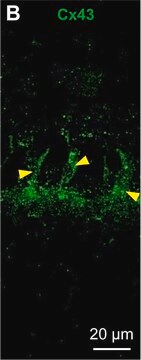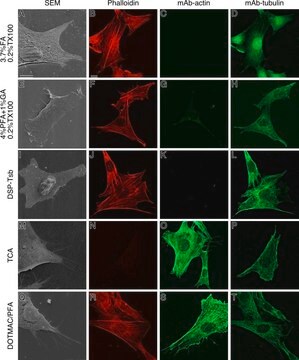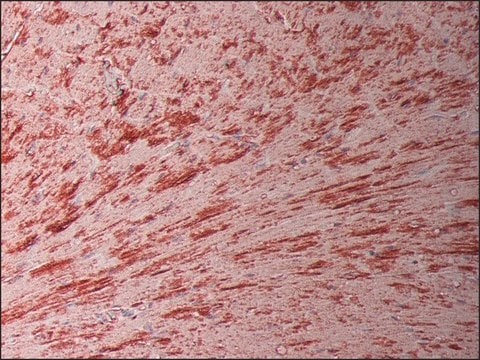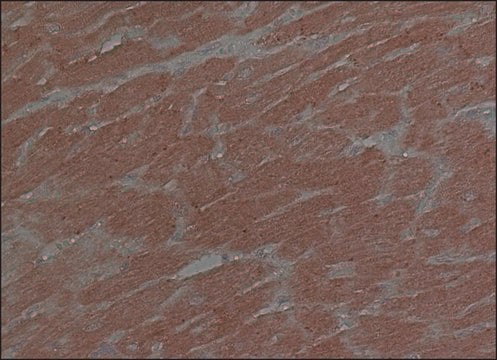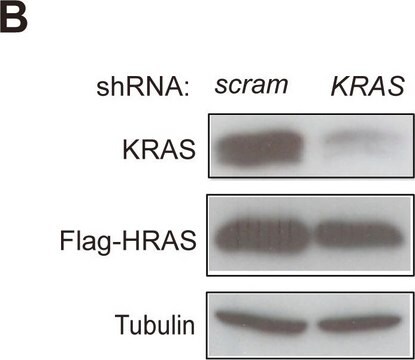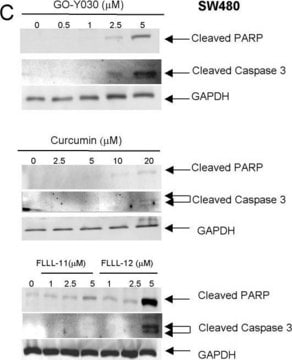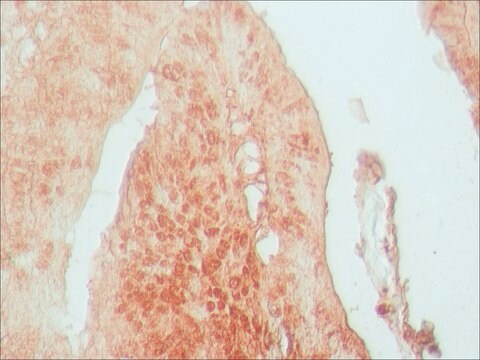C8093
Anti-Connexin 43 Antibody
mouse monoclonal, CXN-6
Synonym(s):
Mouse monoclonal antibody
About This Item
ELISA (i)
ICC
IHC (f)
IHC (p)
WB
immunohistochemistry (formalin-fixed, paraffin-embedded sections): suitable
immunohistochemistry (frozen sections): suitable
indirect ELISA: suitable
microarray: suitable
western blot: 1:8,000-1:16.000 using mouse whole brain extract
Recommended Products
Product Name
Monoclonal Anti-Connexin-43 antibody produced in mouse, clone CXN-6, ascites fluid
biological source
mouse
Quality Level
conjugate
unconjugated
antibody form
ascites fluid
antibody product type
primary antibodies
clone
CXN-6, monoclonal
mol wt
antigen 43 kDa
contains
15 mM sodium azide
species reactivity
rat, hamster, bovine, mouse, human
technique(s)
immunocytochemistry: suitable
immunohistochemistry (formalin-fixed, paraffin-embedded sections): suitable
immunohistochemistry (frozen sections): suitable
indirect ELISA: suitable
microarray: suitable
western blot: 1:8,000-1:16.000 using mouse whole brain extract
isotype
IgM
UniProt accession no.
shipped in
dry ice
storage temp.
−20°C
target post-translational modification
unmodified
Gene Information
human ... GJA1(2697) , GJA1P1(2698)
mouse ... Gja1(14609)
rat ... Gja1(24392)
Related Categories
General description
Specificity
Immunogen
Application
- fluorescent immunostaining
- western blotting
- immunocytochemistry
- preparation of immuno-affinity columns
Biochem/physiol Actions
Disclaimer
Not finding the right product?
Try our Product Selector Tool.
recommended
Storage Class Code
13 - Non Combustible Solids
WGK
WGK 1
Flash Point(F)
Not applicable
Flash Point(C)
Not applicable
Regulatory Listings
Regulatory Listings are mainly provided for chemical products. Only limited information can be provided here for non-chemical products. No entry means none of the components are listed. It is the user’s obligation to ensure the safe and legal use of the product.
JAN Code
C8093-.2ML:
C8093-BULK:
C8093-VAR:
Choose from one of the most recent versions:
Certificates of Analysis (COA)
Don't see the Right Version?
If you require a particular version, you can look up a specific certificate by the Lot or Batch number.
Already Own This Product?
Find documentation for the products that you have recently purchased in the Document Library.
Articles
Cancer research has revealed that the classical model of carcinogenesis, a three step process consisting of initiation, promotion, and progression, is not complete.
Our team of scientists has experience in all areas of research including Life Science, Material Science, Chemical Synthesis, Chromatography, Analytical and many others.
Contact Technical Service